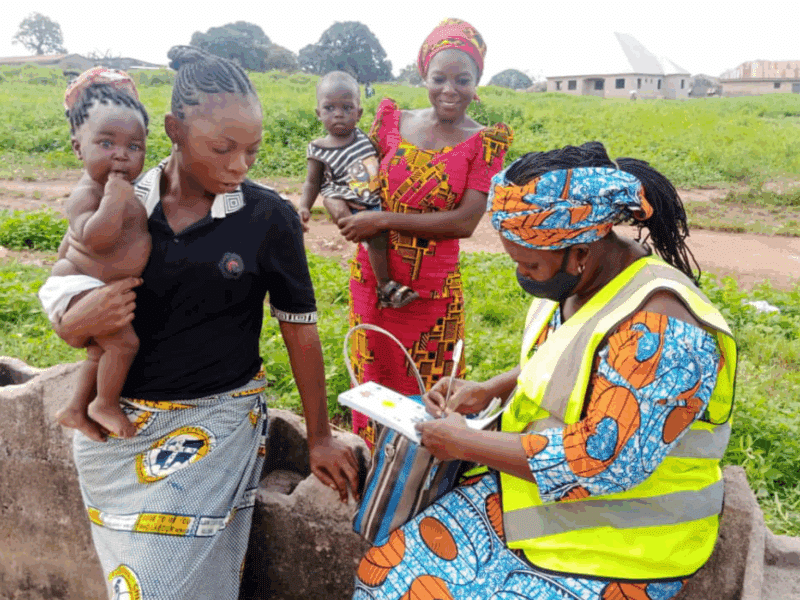Research has shown that when couples make family planning decisions together, they are significantly more likely to adopt modern contraception. But what does this shared decision-making actually look like for men when family planning is often positioned as the woman’s responsibility?
A newly published study in PLOS Global Health, led by the Johns Hopkins Center for Communication Programs, suggests that two thirds of Ugandans, both men and women, believe that men need to be fully engaged in the important decisions around child spacing and contraceptive uptake.
The study, conducted via a nationally representative telephone survey of 1,177 Ugandan adults in December 2020, also finds that men, women and even health care providers have differing views as to what that male engagement looks like in the family planning space.
Men, for example, mostly believe that male engagement in family planning simply involves a discussion with their wives. The majority of women, however, believe that this conversation is just the beginning and more support from their male partners is required, including, for example, being accompanied to health clinic visits.
“Once a man provides transport to the clinic and has agreed to the decision on family planning uptake, he may feel like his role is done, but often women don’t think that is enough. They want their husband by their side,” says CCP’s Emmanuel Kayongo, deputy chief of party in Uganda. “While women might view partner support as being escorted to the clinic, some men view escorting their partner as being controlled by the woman or being labelled as weak.
“In this campaign, we are showing that it’s okay for a man to escort his wife to the family planning clinic.”
Some service providers, on the other hand, have long expected men to attend pre-natal care visits with their wives and some even delay attending to women who have come alone to the health center. There are concerns that this also extends to family planning.
These findings were the basis of a campaign developed by the USAID-sponsored, CCP-led Social and Behavior Change Activity in Uganda that highlights the importance of partner support and empowers couples to have honest conversations about their preferences.
The “Happiness” campaign, as it is called, which began in August 2022, utilizes mass media and small interpersonal conversations to help bridge the gender gap, and ensure that women are getting the support they need to fulfill their family planning goals. The campaign infuses behavioral science approaches, such as narrative storytelling and nudges like special invitations or personalized messages to male partners, respectively.
They are learning along the way, providing call centers, WhatsApp groups, and other platforms where Ugandans can get answers to their family planning questions. After promoting all modern contraception, the project realized that there was inadequate messaging on IUDs and other longer-term methods. As a result, they added more emphasis on IUDs and ensured that clinics had the tools and skills to inset them.
Some of the work is done by village health teams, who have visited tens of thousands of households where health outcomes are known to be poor. The teams use a tool adapted by the project called the “Wheel of Good Practices,” which helps couples start conversations about family planning. The teams make return visits to make sure that couples who have agreed to use modern contraception actually seek services and refer them to a health care provider if needed.
A village health team found Jimmy Owiny’s family – his wife, Ikalanyi Rosaria, and their three young children – in a difficult situation when they arrived at the Owiny home in Northern Uganda. The family lacked amenities such as a latrine, suffered through bouts of malaria and malnutrition, and didn’t have enough money for basic needs because of Jimmy’s disability, an arm that was barely functional. Meanwhile, even though their situation would get even worse if the family had another mouth to feed, Jimmy was not supportive of Rosaria using family planning.
After four months of visits from the team, their lives were transformed: They were building a latrine, there were mosquito nets hanging above the beds – and Rosaria was using modern contraception.
Routine monitoring conducted by the Uganda team found that when home visits such as the one to the Owiny home began in 24 sub counties, 15 percent of women were already using family planning. By the fifth visit, nearly 50 percent of those in the program were using modern contraception.
Paul Odeke, the project’s senior technical advisor for social and behavior change, says that there is also a need to focus on the use of postpartum family planning, when women who bring their newborns for immunization often discuss, and choose, a modern contraceptive method. There is some talk of developing services for men, such as blood pressure monitoring, so that they also feel an incentive to return to the clinic and have another conversation about family planning.
“While the goal is to have full participation by men in the family planning process, sometimes it’s not feasible,” he says. “Therefore, we also integrated values clarification exercises, in terms of ensuring that women know they have a right to health care and family planning regardless of what their male partner thinks.”
The campaign, Odeke says, could go a long way toward increasing couple communication – and helping more men and women use the modern contraception of their choosing.
“What does your partner want? Using a gender equality lens to assess partner support and involvement in family planning in Uganda” was written by Bolanle Olapeju, Anna Passaniti, Paul Odeke, Zoé Mistrale Hendrickson, Judith Nalukwago, Pallen Mugabe, Leonard Bufumbo, Musa Kimbowa, Fiona Amado, Emmanuel Kayongo, Mabel Naibere, Nanah Nanyonga, Glory Mkandawire, Richard Mugahi, Tabley Bakyaita, Richard Kabanda and J. Douglas Storey.





